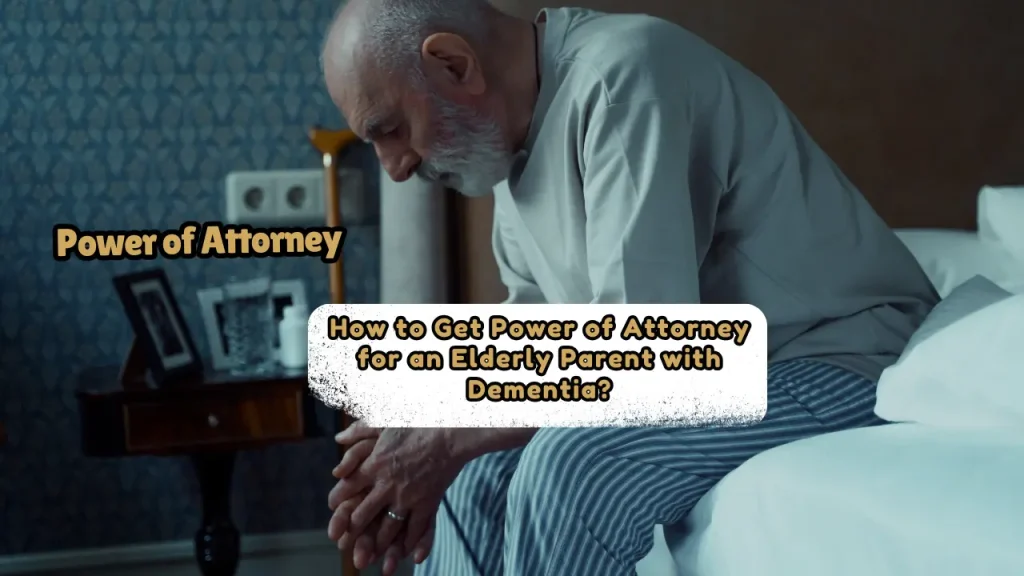How to Get Power of Attorney for an Elderly Parent with Dementia?
To obtain power of attorney (POA) for a parent with dementia, act quickly while they still have legal capacity. You’ll need a durable POA (valid even after incapacity) and must follow strict state laws for signing. If capacity is lost, guardianship becomes necessary.
Table of Contents
Why a POA Is Critical for Dementia Care
A power of attorney (POA) lets you manage your parent’s affairs as their dementia progresses. Without one, you’ll face costly court hearings for guardianship. Key reasons to act now:
- 50% of adults over 85 have dementia (National Institute on Aging).
- POA prevents crises: Manage finances, healthcare, and daily care seamlessly.
- Avoid guardianship: A 6-12 month legal process costing 3,000−10,000.
Step 1: Determine If Your Parent Still Has Legal Capacity
Your parent must understand the POA’s purpose and consequences to sign it. Capacity tests include:
- Asking simple questions: “Do you want me to help pay bills if you get sick?”
- Getting a doctor’s assessment (some states require this).
Act fast: Capacity can decline suddenly. Once lost, you must pursue guardianship.
Step 2: Choose the Right Type of POA
For dementia, use a durable POA, which remains valid after incapacity:
- Financial Durable POA: Manages bank accounts, bills, property.
- Healthcare POA: Makes medical decisions (e.g., nursing home placement).
Avoid general POAs: They expire if your parent becomes incapacitated.
Related article for you:
How to Get Power of Attorney for Someone Who Is Incapacitated?

Step 3: Consult an Elder Law Attorney
A lawyer ensures compliance with state laws and prevents challenges. They can:
- Draft a custom POA covering dementia-specific needs (e.g., Medicaid planning).
- Add safeguards like requiring a doctor’s certification of incapacity.
- Cost: 200−500 (far cheaper than guardianship).
State Examples:
- Texas: Use the state’s statutory form (Estates Code § 751.0021).
- California: Requires two witnesses for healthcare POAs (Probate Code § 4673).
- Florida: Allows electronic signatures with witnesses (Statute § 709.2105).
Step 4: Execute the POA Correctly
Follow your state’s rules to avoid rejection by banks or hospitals:
- Sign in front of a notary (mandatory in most states).
- Include witnesses: Usually 2 non-relatives.
- Store copies: Give one to their doctor, bank, and family.
Critical Tip: Record a video of your parent consenting to the POA to deter future disputes.
Step 5: Transition to Guardianship If Necessary
If your parent lacks capacity and has no POA:
- File for guardianship in probate court.
- Submit a doctor’s letter confirming incapacity.
- Attend a court hearing (a judge appoints you as guardian).
Drawbacks:
- Costs $3,000+ and takes 6-12 months.
- Your parent loses all decision-making rights.
3 Costly Mistakes to Avoid
- Waiting too long: 60% of dementia caregivers regret not planning earlier (AARP).
- Using online forms: Generic templates often lack state-specific requirements.
- Choosing the wrong agent: Siblings who disagree can derail care.
Real-Life Example:
A Texas family’s DIY POA was rejected by their parent’s bank due to improper notarization. They lost 4 months fixing it while bills piled up.
How to Talk to Your Parent About a POA
- Frame it as safety: “This helps me honor your wishes if you get sick.”
- Pick a calm moment: When they’re rested and lucid.
- Bring a third party: A doctor or lawyer can ease fears of “losing control.”
State-Specific Requirements
| State | Key Rule | Resource |
| Texas | Notarization required for financial POAs | Texas Law Help POA Form |
| CA | Two witnesses for healthcare POAs | CA Courts Self-Help Guide |
| FL | Allows electronic POA signatures | FL Bar Association |
Alternatives If POA Isn’t Possible
- Joint bank accounts (if set up before incapacity).
- Representative payee for Social Security/VA benefits.
- Trusts: Requires prior setup but bypasses guardianship.
Key Takeaways
Act immediately: Capacity can vanish overnight.
Use a durable POA: It works through all stages of dementia.
Follow state laws: Notarization and witnesses are often required.
Consult a lawyer: Avoid DIY disasters.
Need Help Now?
- National Elder Law Attorneys: www.naela.org
- Alzheimer’s Association 24/7 Helpline: 1-800-272-3900
- Free POA Forms: AARP State-Specific Templates
By securing a POA early, you protect your parent’s dignity and finances—while avoiding the trauma of guardianship. Don’t wait until it’s too late.
About the Author

Sarah Klein, JD, is an experienced estate planning attorney who has helped clients with wills, trusts, powers of attorney, and probate matters. At All About Lawyer, she simplifies complex estate laws so families can protect their assets, plan ahead, and avoid legal headaches during life’s most sensitive moments.
Read more about Sarah
